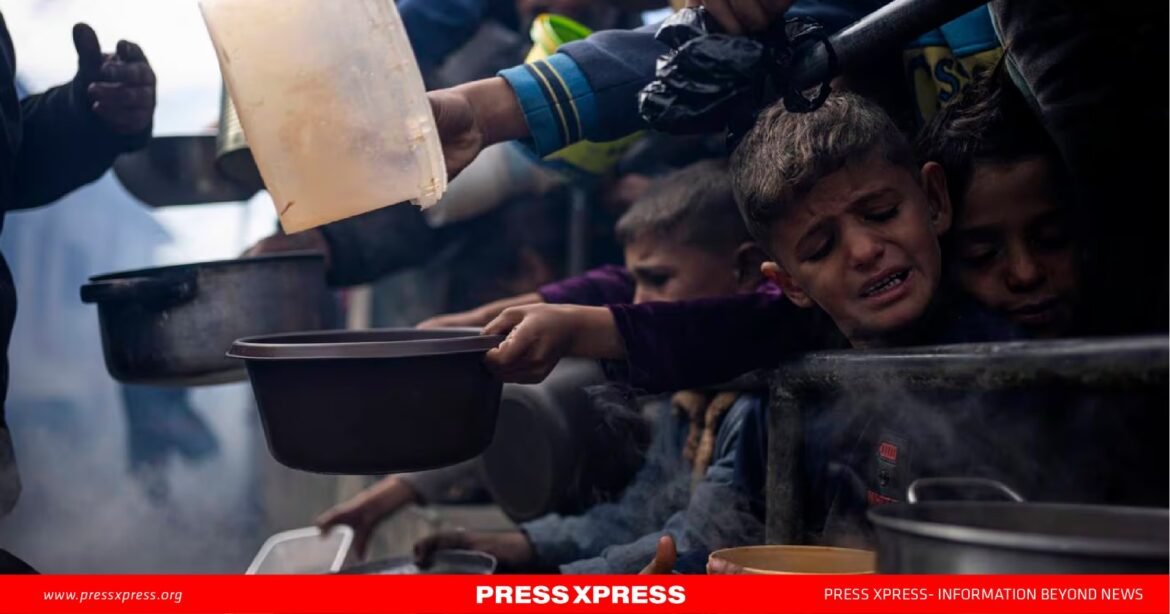Did you know, that nearly 70% of Gaza war were dead women and children? And many of these deaths were attributed to the lack of essential resources such as food, water, and medical supplies?
Amid such a dire situation, the United States signaled on Tuesday that it would not enforce punitive measures against Israel for failing to improve humanitarian conditions in Gaza, despite escalating concerns from international aid organizations about the deteriorating situation. While the outgoing Biden administration urged Israel to accelerate aid flows into Gaza, it stopped short of imposing consequences. This comes as the initial 30-day deadline issued by the U.S. last month for Israel to enhance humanitarian access expired without the intended results.

Aid Efforts Stalled in Gaza
The White House’s conditional support for Israel, which hinged on visible improvements in Gaza’s humanitarian situation, has faced criticism from international observers who say that the situation has worsened significantly. In response to the missed deadline, aid groups underscored the severity of conditions in Gaza, describing them as ‘catastrophic’. The United Nations estimates that around 2.3 million people in Gaza now depend almost entirely on aid for their basic needs.
At a press conference, Vedant Patel, spokesperson for the U.S. State Department, acknowledged that Israel has taken only limited steps to improve conditions, yet emphasized that the U.S. remains committed to securing further action from Israel.
“We are not giving Israel a pass,” said Patel. “We want to see the totality of the humanitarian situation improve,” he added.

The Reality of Aid Truck Flows
The level of aid reaching Gaza falls drastically short of what’s needed. The U.S. called for 350 aid trucks per day, a benchmark meant to address the escalating crisis. Yet, October saw an average of only 57 trucks daily entering Gaza, increasing slightly to 75 in November, according to Israeli data.
However, UN figures reveal a far lower average, at just 39 trucks per day since early October. The disparity is even more stark in northern Gaza, where aid shipments have reportedly been almost nonexistent due to a sustained Israeli military offensive.
“We barely have any aid entering the northern regions of Gaza—places like Jabaliya, Beit Lahiya, and Beit Hanoun are seeing no relief,” stated a UN official familiar with the humanitarian operations in the region.

Israel attributes the scarcity of aid in Gaza to multiple factors, including security restrictions during Jewish holidays in October and the ongoing conflict with Hamas. Meanwhile, Israel’s Coordinator of Government Activities in the Territories (COGAT) recently claimed opening an additional crossing to facilitate aid delivery into Gaza, but aid agencies report that blockades and military restrictions have hindered the intended flow.
Denial of Passage for Critical Supplies
International aid organizations, including the World Food Program (WFP) and the United Nations Relief and Works Agency for Palestine Refugees (UNRWA), report numerous instances of aid trucks being denied access to the most critically affected areas.
Louise Wateridge, spokesperson for UNRWA, lamented the inconsistency in allowing humanitarian convoys to reach those in dire need. “Aid may be sitting at the border, but if we’re not provided with a safe passage, it will not reach those who need it the most,” she said.
In October, the UN Office for the Coordination of Humanitarian Affairs noted that Israeli authorities rejected roughly 43% of movement requests for humanitarian staff and goods and further impeded 16% of requests. Rachel Morris from Mercy Corps confirmed that trucks carrying emergency supplies like tents were turned back multiple times, reportedly due to fears that Hamas could repurpose such supplies.
This obstruction has triggered a diplomatic spat, with Israel’s government asserting that Hamas has infiltrated UNRWA’s operations—a claim that UNRWA denies. Last month, this tension escalated to the point where Israel considered barring the organization from operating within Gaza altogether.

Lawlessness and Insecurity on Aid Routes
Beyond official obstacles, aid agencies face lawlessness along Gaza’s aid routes. Armed groups and family-based criminal gangs have reportedly stolen between 30% and 40% of aid shipments, according to an Israeli military official who requested anonymity. COGAT spokesperson Shani Sasson acknowledged these challenges, adding that the Israeli military has attempted to secure certain routes, but has been unable to ensure protection for all aid convoys due to the high number of volatile actors in the region.
Aid groups note that theft and extortion along these routes have severely curtailed their ability to distribute supplies within Gaza. According to Aseel Baidoun, a senior official with Medical Aid for Palestinians, drivers are sometimes forced to pay fees to navigate aid shipments past dangerous checkpoints. “The Israeli military is failing to provide an enabling environment to bring in sufficient humanitarian goods to Gaza,” Baidoun said.
The Human Cost of Inaction
The ongoing barriers to aid delivery have had devastating consequences for Gaza’s population. According to the UN, at least 326 aid workers have been killed since the conflict intensified, with many of these deaths occurring amid aid distribution efforts. Although the U.S. continues to push Israel for improved access, there has been little meaningful movement toward ensuring the safe and timely delivery of essential supplies.

As reports emerge of severe food shortages and potential famine in northern Gaza, aid workers on the ground describe the situation as dire. Jan Egeland, secretary-general of the Norwegian Refugee Council, said last week, “The deliberate starvation of almost 2 million civilians is unfolding, and the aid allowed in is far from adequate.”
With criminal gangs targeting supply convoys, and military restrictions preventing aid workers from reaching certain areas, international organizations warn that Gaza’s humanitarian crisis will only deepen. Experts emphasize that unless the blockade is lifted and consistent access to humanitarian aid is secured, the region could experience a long-term humanitarian disaster.
Lastly, with the U.S. deadline unmet, Biden faces growing pressure to act on Gaza’s aid crisis, yet strategic ties with Israel complicate any move toward enforcing consequences.


